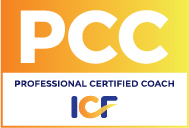When your personal values become in conflict at work, you become fed up, and might not care anymore if you get fired
Your organization has many policies, procedures and rules. Some of which you are in alignment with, others not so much.
There’s an impact on employees with all of them. Some subtle, and others glaring like a loud horn or a bright light.
The challenge for you is that not everyone can see the lights or hear the horn.
Your personal values are tested within this environment and your patience is quickly running out. You’ve spoken up at various times and are left feeling ignored by the inaction.
Sometimes there’s push back on the issues you speak up about, leaving you concerned that you could get fired for sharing your opinions.
The feelings of not being able to change the underlying system of the organization leave you defeated and in a state of resignation.
How much more can you take? What will you do to survive the environment? Maybe we can find ways out of this predicament.
When Unwritten Workplace Policies Clash With Your Personal Values
It’s been a few years in your role at this organization and there’s the usual ups and downs. The existing policies have contributed to the roller-coaster more than you initially thought. There’s way more lip service than you bargained for, in that people say the right things but their actions say otherwise.
As a leader you aspire to be firm but friendly, and understanding, all while modeling the growth mindset in holding staff accountable for their production in forward-thinking ways.
Some of them have been permitted to be underachievers long before you arrived. As you start to address what you see as issues, you run into the known-yet-unwritten policies.
The ones that essentially give people good evaluations for underperforming and enable them to think they’re rock stars when they’re barely a fan.
This combined with difficult conversations being danced around, indirectly had, or avoided altogether. The bottom-line is…don’t rock the boat, so as not to create discomfort for anyone at any level of the organization.
You’re handcuffed from doing what your role asks, what you know is needed, and what staff are missing.
From experience you know the only way to increase performance is to inform the underperformers of their status and abilities, the areas for them improve and ways to get there.
They are doing what they know how, and in some cases what they know they can get away with. They’ve been conditioned to be mediocre and mislead to believe it’s enough.
You have made efforts to lead, to speak up and take corrective actions. The push back you get from above and below, for upsetting the present culture is unreal. It’s taken a while to get here, but you are keeping the great new thoughts and ideas to yourself.
This experience is new for you, and you may be feeling as if there’s no support, so you keep it all bottled up.
Suffering in silence is no longer working and it’s a struggle to find a way out.
What specifically is it about the existing culture you don’t understand? How is it that everyone arrived at the conclusion of not giving feedback around performance?
Questions like these will help you uncover the beliefs held and reinforced in the organization.
The System’s Values Are Not Your Own
It’s become clear to you that the organization doesn’t stand for the same values you stand for.
Everything that they say they value are supposed to be the things that are your personal values.
The action is not there to support it and you’re fed up. You just don’t care anymore.
That resignation hurts deep down and keeps you up at night. You see firsthand how the system not only impacts staff, but also the communities the organization touches.
The helplessness has led you to join the committees and task forces to make a difference. This brings some comfort as you’re engaged in conversations with others interested in making change, at least on the surface.

Every chance you get to point out the hypocrisy in practices which aren’t equitable for everyone.
There’s temporary relief with your engagement, and little changes. You haven’t noticed the complaining you slowly started participating in. Powerlessness has crept into your own work and daily conversations.
This isn’t like you, yet you’re stuck sinking in the quicksand of systemic despair.
To get out of this funk you’ll need to think different.
What is in your power to create change for yourself?
Thinking about others you interact with regularly, what would they say is in their power make change?
This is where it starts, with each person examining what they have the power to change in their roles. There’s a rebellion to be had for sure, but the approach matters if it is to be a success.
What is it that those around you fear most about making the needed changes? How might you be able to support them in solving for those fears? What about your own fears, and how could they be solved?
If this isn’t a path you feel comfortable taking, then what other ideas do you have?
When You Have Nothing Left to Lose
Finding another job is always on the table.
Running from a challenge is the opposite of who you are or aspire to be as a leader, but your back is against the wall.
In thinking about the experience, you want to create for yourself, others in the organization and the communities impacted, taking a stand is what you’ve come up with.
You’re not a quitter, so if you must find another job then you’ve decided they’ll have to fire you.
Believe it or not, taking a stand is a demonstration of leadership.
For you it’s about doing the right thing for the right reasons, and you’re done standing by while “business as usual” has detrimental impacts. What is it you want to say to get your point across and who needs to hear it?
Crafting your message matters if you want to be heard and have the impact you seek. What is that impact by the way? Being clear on that impact you wish to create will help in choosing an effective way to deliver it.
Impact is a catalyst for change, and can be a stronger motivator than fear, when the desire for creating it is big enough.
Want to know how to make an impact with your message? Ask.
Ask what impact others want to have on the organization and their communities. Those in power have an opinion and vision for their impact, and that is your anchor point.
Having them articulate the impact they want to create, informs you of the gaps you need to fill-in to have an impact with them.
We’ve covered asking questions in previous articles, so here’s a great place to put that thinking to practice.
For you to create the impact you seek in taking a stand, you need to know how to show other staff and leader’s new ways to create the impacts they want to have.
What answers about their impact would be useful for you to have, and then what questions might get those answers? Remember to keep the questions short and to be specific in what you’re asking.
An example would be: what impact do you want to have on your staff as a leader? From there you can think of ways you could help in the delivery of that impact, and thus deliver on your desired impact.

Go Down Swinging. Stand up for your personal values. Impact your workplace.
Lip service doesn’t sit well with you because you’re all about the action and delivering.
Through your efforts to navigate your role, the reality sets in that what you value is not being practiced in the organization.
The struggle to get others to listen to your concerns, leads to a path you don’t like and has you behaving outside of your personal norms.
You hit your breaking point and really don’t care if you get fired because something must change. That change starts with you and your approach, while leaning into your leadership.
From that position of leadership, how you create impact for yourself and others will be a defining moment in your career.
Asking questions leads you to an empowered path of taking charge to enroll others in creating the impact they wish to see, while doing the same for yourself. How do you want to clarify the impacts you want to have as a leader?
How can you stand up for your personal values, while leaving space for others to stand up for theirs?
What are the specifics actions or steps required to meet your goal? What tools will you use to support others in clarifying the impacts they wish to have? What are predictable obstacles you may run into?
How will you navigate those obstacles to ensure success? Having answers to questions like these will lead you down the path to have a plan that’s failure proof, because finding effective ways to make an impact is the goal itself. Executing will then be a no-brainer.




